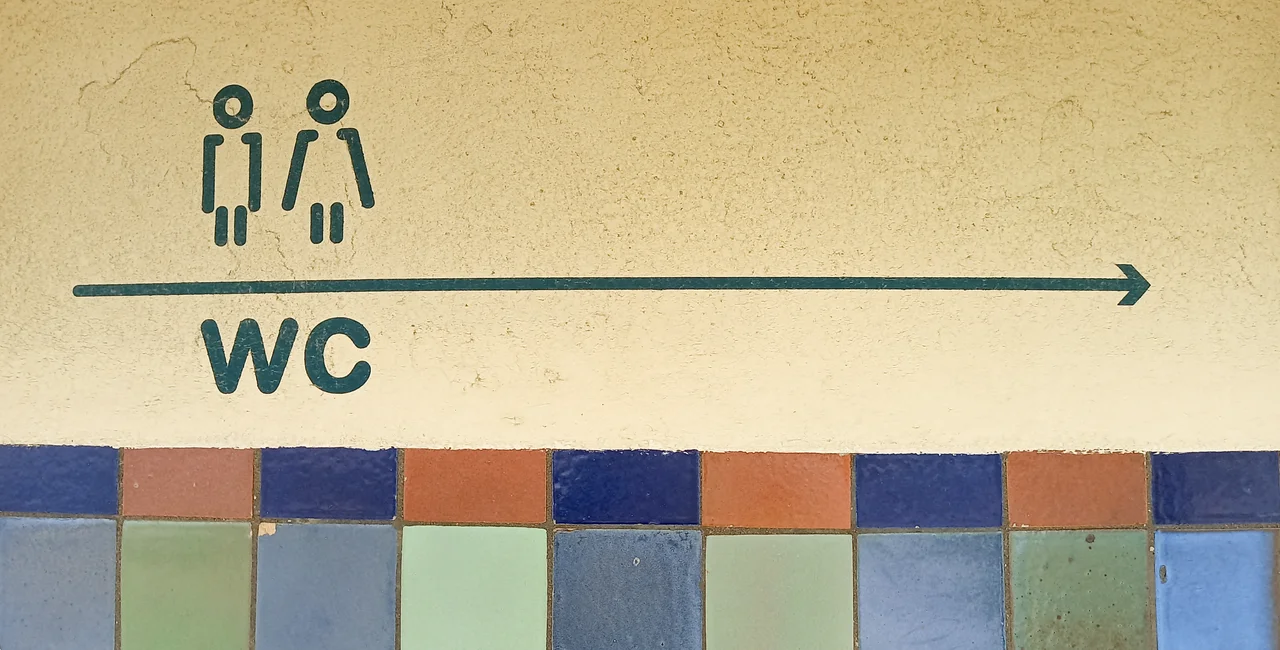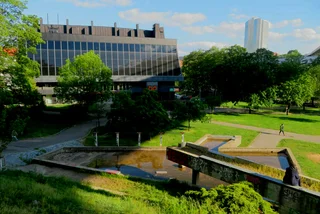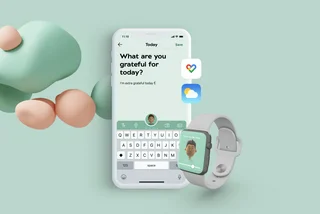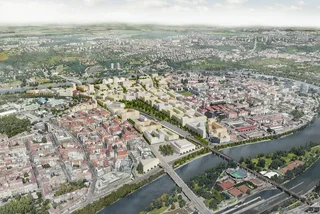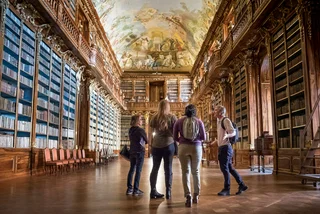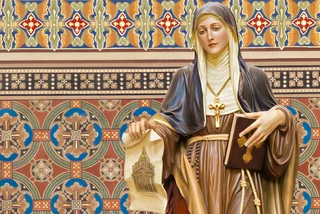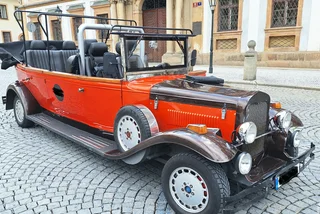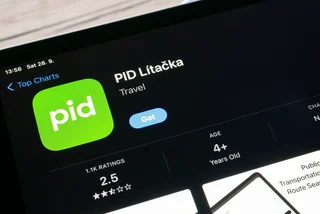Feeling the need to empty your bladder or fill up your water bottle when exploring Prague’s outer neighborhoods? Most cafes and pubs have facilities for customers only, which means spending money to satisfy either of those needs.
An initiative in Prague’s Nusle district aims to cover both problems (as well as curb public urination) with participating establishments placing a sticker in their windows that indicates a warm welcome for passersby.
Neighborhood group Probuďme Nusle (Awakening Nusle) has created stickers that say “Vstřícné místo,” (“supporting place”) now appearing on the windows of local pubs, cafes, shops, libraries, and other venues that have agreed to offer free toilets, free water, street-cleaning, or all of the above.
“The public space of our neighborhood, and indeed of our whole city district, is not a very welcoming place – in the hot summer there is nowhere to cool off, nowhere to go to the toilet, and … the streets are often full of rubbish,” Probuďme Nusle wrote on Facebook.
Probuďme Nusle also organizes events and has found that in the end, despite the good turnout, the district lacked the facilities to handle an influx of people.
The new stickers bear the motto “Vstřícné místo” in a green circle, with the “o” in “místo” as a heart with additional symbols indicating what each establishment offers. WC means people can use the bathroom without a purchase. H2O indicates a free water-bottle refill. Úklid shows that the shop or eatery cleans the sidewalk even though technically that is the city’s responsibility.
Already over a dozen establishments are listed on the project’s website, with five allowing the use of toilets for free and 12 providing free water. All of them clean the streets in front of their premises.
The neighborhood group says the project is also taking pre-emptive action to a larger social problem, that of public urination, by offering a solution.
“Supporting Place is a newly emerging network of friendly Nusle companies, organizations, facilities, etc., which have a sense of community and social responsibility and need to do more than just generate profit,” Probuďme Nusle said.
Not only is relieving oneself in public rude behavior, it is also illegal and can result in a ticket. Some parking lots even have cameras set up to capture people “jumping on a little one,” as it is called in Czech. But catching someone after the act does little to remedy the larger situation.
While statistics on the problem are hard to come by, a 2015 report by news server Lidovky.cz said that Prague spent CZK 3 million for cleaning crews to disinfect just a few areas commonly used for public urination.
The project's primary benefits, providing water, reducing litter, and creating a pee-free zone are obvious, but other benefits have emerged since it began. One participating venue that provides all three services is the Jezerka branch of the Municipal Library, which has become a ‘supporting place’ on the border of the Nusle and Michle districts.
Chief librarian Lenka Nehasilová told weekly Metro that the project has helped raise public awareness of the library that opened in 2020 and has open space suitable for small concerts, a large collection of books, a quiet room, and an atelier with some tools for handicrafts and upcycling.
“Sometimes they only use the toilet, but often they stay longer, surprised by the beautiful library inside and that this also an interesting building,” she said.
As with any quality seal, participants can lose the right to display the stickers if they don’t live up to their commitments: people are allowed to submit complaints to the organizers for review.
Nusle isn't the first district in the Czech capital to launch such a project; Prague 7 has something similar since 2017. Plzeň seems to pioneered the trend in 2016, following its success as the European City of Culture in 2015 and taking its cues from sister city, Regensberg. A similar initiative was recently launched in Brno.












 Reading time: 3 minutes
Reading time: 3 minutes 